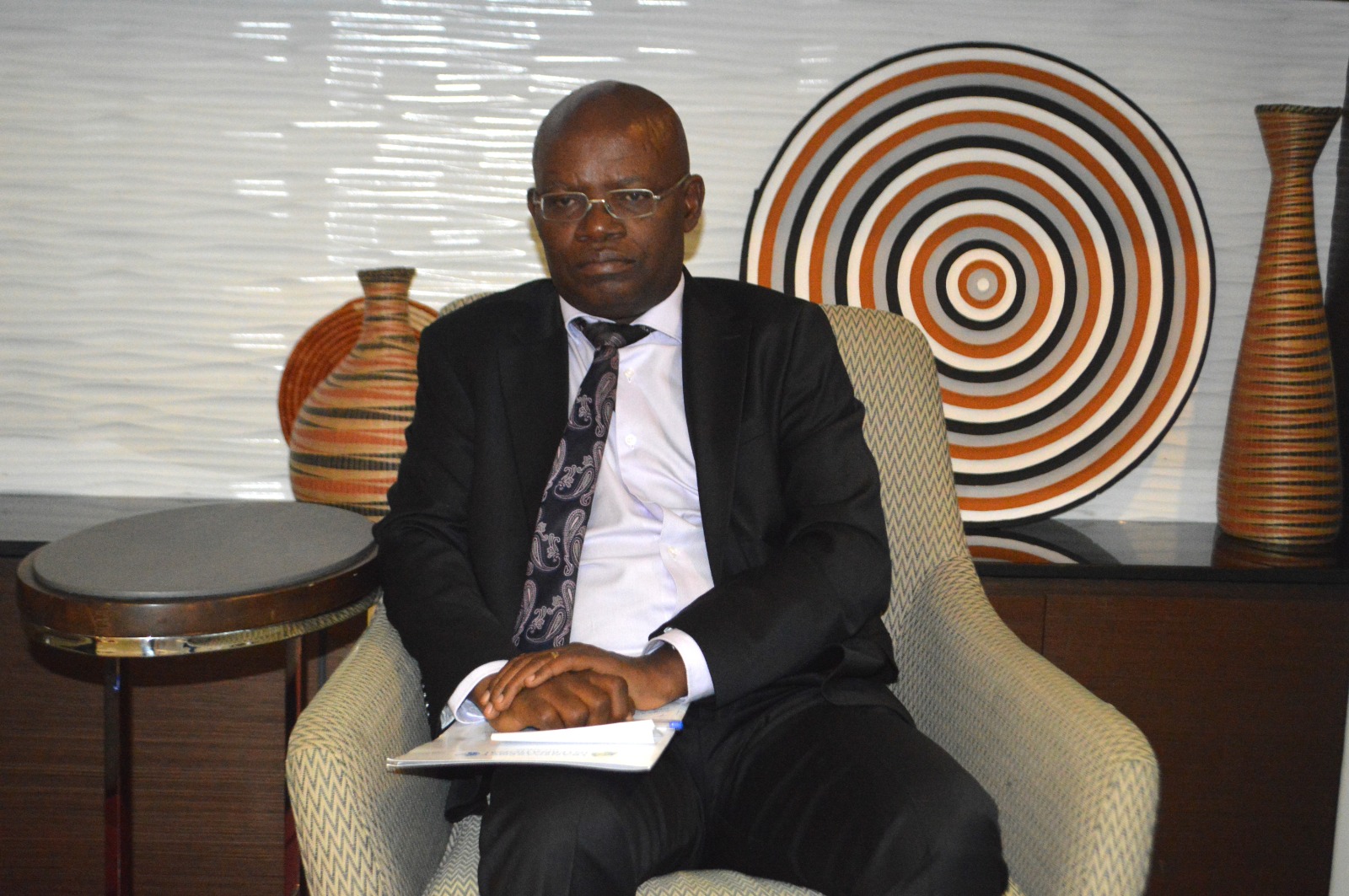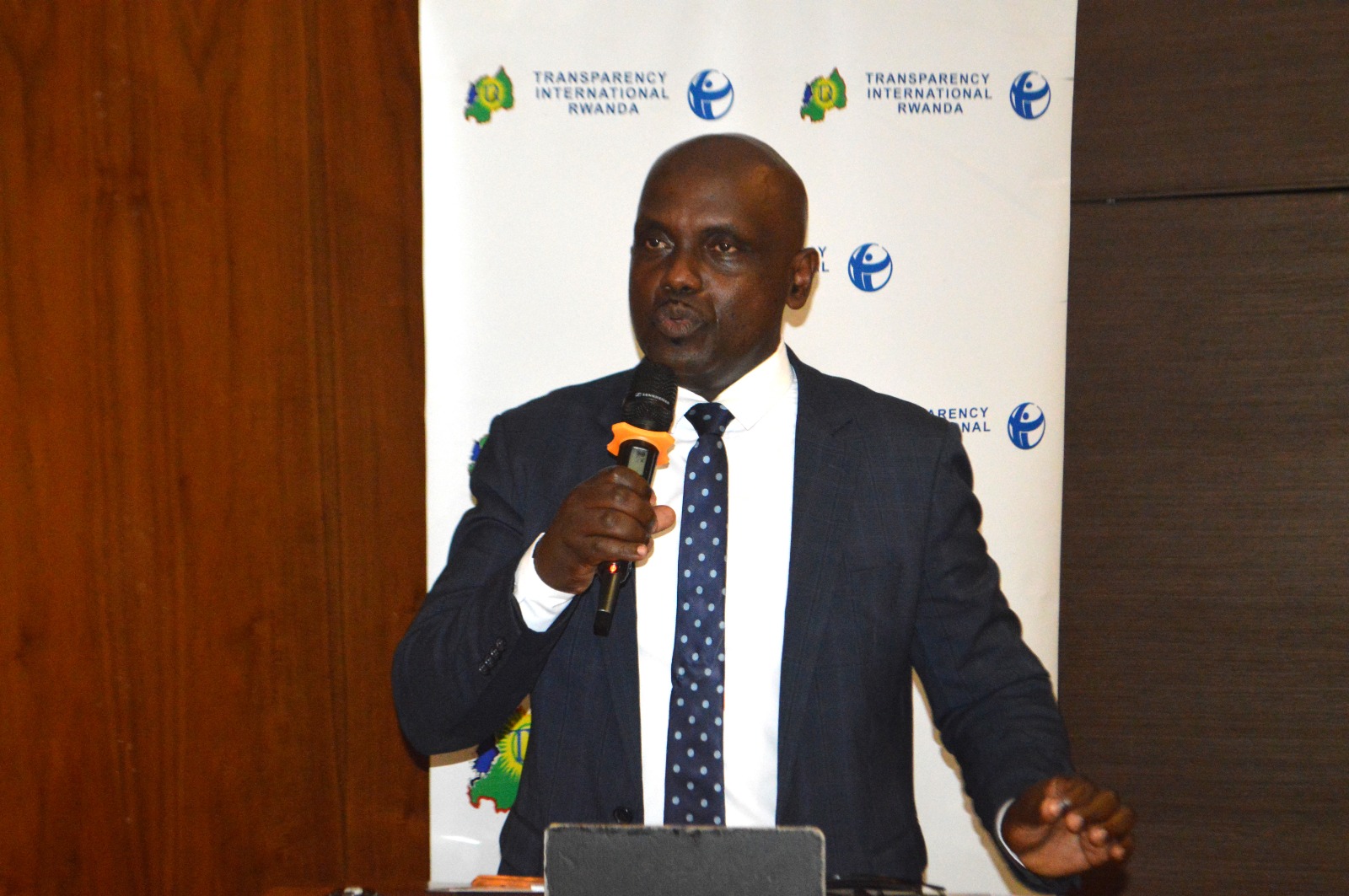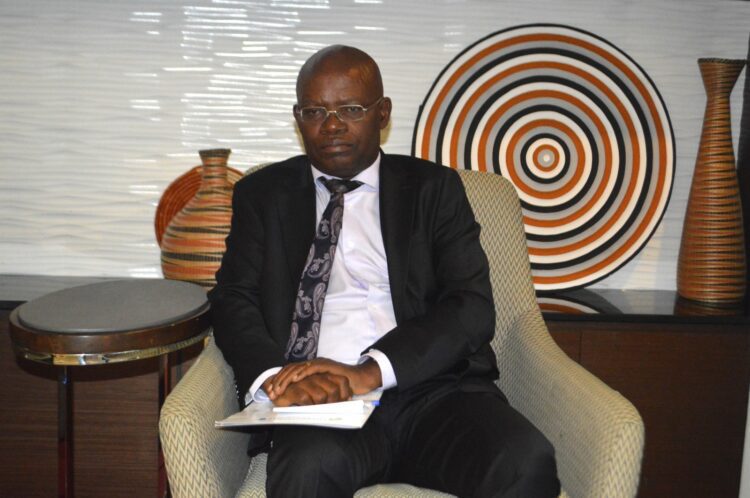151
Mukama Abbas, Deputy Ombudsman
Rwanda has managed to secure an improved ranking in the 2023 Corruption Perceptions Index (CPI), amidst a low performance among Sub- Saharan Africa (SSA) Countries compared to other regions.
The CPI ranks 180 countries and territories around the globe by their perceived levels of public sector corruption, scoring on a scale of 0 (highly corrupt) to 100 (very clean).
The global ranking index was released by Transparency International (TI) secretariat on January 30, 2024 showed that Rwanda made a slight progress, marked by an increased score of 53% (up from 51% in 2022).
With this elevated score, Rwanda maintains its standing as the fourth least corrupt country in the Sub-Saharan Africa region, securing the top position in East Africa, and attaining the 49th spot globally (improved from 54th in 2022).
In East Africa, Rwanda leads the way, followed by Tanzania (87th with 40%), Kenya (126th with 31%), Uganda (141st with 26%), Democratic Republic of the Congo (162nd with 20%), and Burundi (162nd with 20%).
In the SSA region, most African countries showed stagnation, maintaining the region’s consistently poor performance, with an unchanged regional average score of 33.
Ninety per cent of countries in Sub-Saharan Africa scored below 50. ▪ Seychelles (71) tops the region, followed by Cabo Verde (64), Botswana (59) and Rwanda (53). Equatorial Guinea (17), South Sudan (13) and Somalia (11) perform the lowest with no sign of improvement.

Harrison Mutabazi, the Spokesperson of the Rwanda Judiciary
Apollinaire Mupiganyi, Executive Director of Transparency International Rwanda (TI-Rwanda) said that the slight increase in Rwanda’s score and ranking signifies a commitment to address corruption and the remarkable progress made thus far, as evident in the annual Rwanda Bribery Index (RBI) recently published by TI-Rwanda.
“However, continued improvement is necessary, and the CPI serves as a call to action, urging reflection on the state of corruption in our midst and a collective effort towards a more just and transparent society.” Mupiganyi said.
Harrison Mutabazi, the Spokesperson of the Rwanda Judiciary said that the use of technology such as the Rwanda’s Integrated Electronic Case Management System (IECMS) in courts systems and case handling has been key in reducing cases of corruption but also improve performance of judiciary staff.
Mutabazi stated that other efforts put in place include the introduction of open court to encourage transparency and accountability through media, awareness raising to end corruption and bribery in courts, and establishing independent committee against corruption which act as judiciary watchdogs.
Deputy Ombudsman, Hon Abbas Mukama said that more collective work needs to be done to address issues that are impeding Rwanda from reaching its zero-tolerance commitment that is spearheaded by the President.

Harisson Mutabazi, the spokesperson of judiciary
“By 2050, we want to be country which is integral with youth who have this as a value. This requires more work and collaboration at all levels without fear of the consequences to point out areas of corruption,” Mukama said.
Mukama revealed that in order to do so, a new anti-corruption committee has been formed and will be chaired by the Minister of Justice and deputized by the Local Government- which reports on status of corruption and act as an advisory and provide oversight to government to take necessary action.
GLOBAL HIGHLIGHTS
Globally, the 2023 CPI shows that corruption is thriving across the world. Transparency International shows that most countries have made little to no progress in tackling public sector corruption.
The CPI global average remains unchanged at 43 for the twelfth year in a row, with more than two-thirds of countries scoring below 50.
“This indicates serious corruption problems,” TI said in a statement.
François Valérian, the new Chairman of Transparency International, said: “Corruption will continue to thrive until justice systems can punish wrongdoing and keep governments in check. When justice is bought or politically interfered with, it is the people who suffer. Leaders should fully invest in and guarantee the independence of institutions that uphold the law and tackle corruption. It is time to end impunity for corruption.”
Denmark (90) tops the index for the sixth consecutive year, with Finland and New Zealand following closely with scores of 87 and 85, respectively. Due to well-functioning justice systems, these countries are also among the top scorers in the Rule of Law Index.
At the bottom line of the index, the report showed that Somalia (11), Venezuela (13), Syria (13), South Sudan (13) and Yemen (16) were among the least performers especially that they are all affected by protracted crises, mostly armed conflicts.
The index reported that 23 countries – among them some high-ranking democracies like Iceland (72), the Netherlands (79), Sweden (82) and the United Kingdom (71), as well as some authoritarian states like Iran (24), Russia (26), Tajikistan (20) and Venezuela (13) – are all at historic lows this year.
The report showed that since 2018, 12 countries significantly declined on their CPI scores. The list includes low and middle-income countries such as El Salvador (31), Honduras (23), Liberia (25), Myanmar (20), Nicaragua (17), Sri Lanka (34) and Venezuela (13), as well as upper-middle and high income economies like Argentina (37), Austria (71), Poland (54), Turkey (34) and the United Kingdom (71).
However, eight countries improved on the CPI during that same period: Ireland (77), South Korea (63), Armenia (47), Vietnam (41), the Maldives (39), Moldova (42), Angola (33) and Uzbekistan (33).
Source link : https://www.ktpress.rw/2024/01/rwanda-makes-slight-improvements-in-corruption-perception-index/
Author :
Publish date : 2024-01-31 08:00:00
Copyright for syndicated content belongs to the linked Source.





